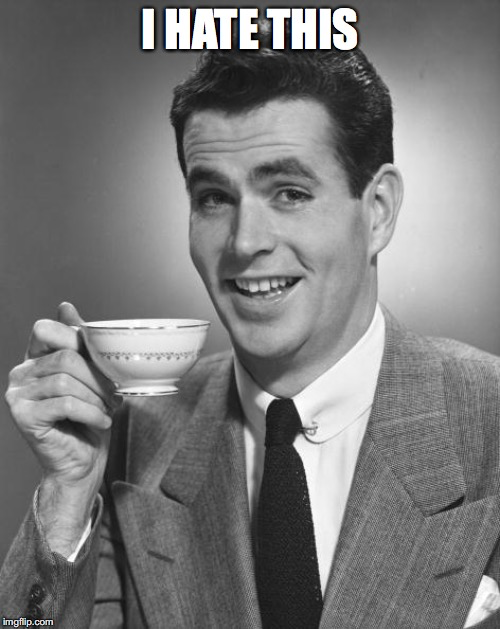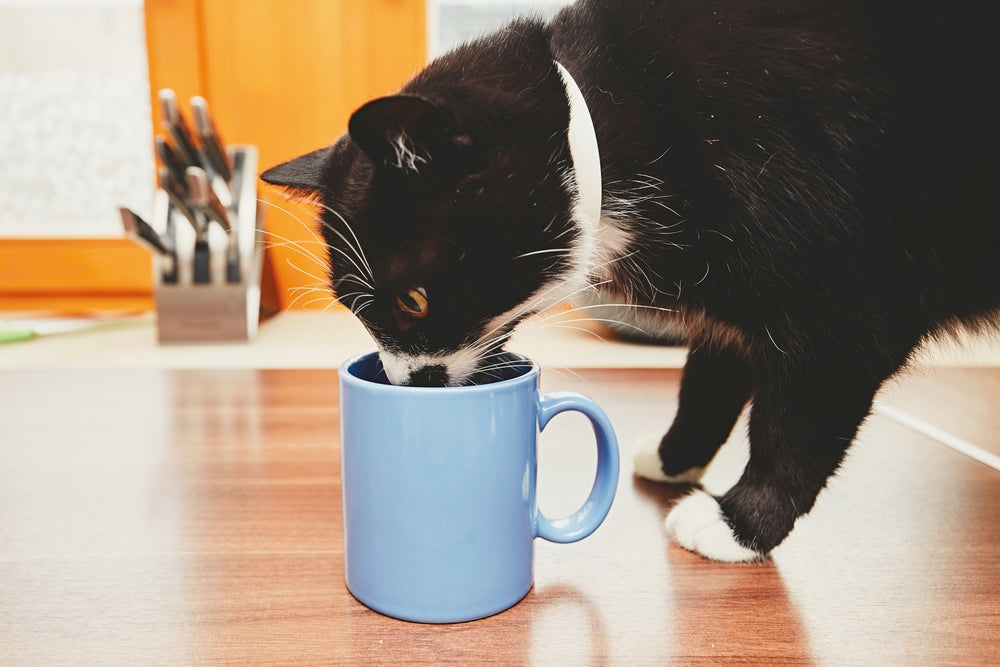Matcha and Caffeine - How Does It Stack Up vs Coffee?
Matcha is gaining popularity as an alternative to coffee, since it delivers more benefits without the unhealthy side effects. But how does it work? Does it actually contain caffeine? And why are so many people exchanging their coffee cups for tea lattes?
This guide covers everything you need to know about this “clean hit” of caffeine.
There’s nothing like a hot cup of coffee on a cold morning. If you’re anything like us, the day just doesn’t feel “right” unless we start it off with a cup o’ Joe (we swear that doesn’t sound like an addiction).

So it pains us to write the following sentence:
Matcha delivers a longer, healthier, cleaner caffeine high without any of the negative side effects
Big statements I know. We didn't believe it at first either, until we tried it.
In fact, we all here at Vitamonk loved it so much that we decided to throw organic matcha into capsules for easy consumption (it's what supplement-geeks do around here).
But there’s a lot of misconception about this tea drink. Here’s the truth about matcha and caffeine.
You can read the whole article below if you want the full picture, but here is our quick 80-20 summary on the whole matcha vs coffee debate:
- Coffee definitely has more of a kick
- But matcha leaves us feeling much better afterwards
- Matcha feels better afterwards due to having L-theanine and theobromine instead of just only having caffeine.
- If you switch from coffee to matcha, expect to give it a few days for your caffeine tolerance to go down.
- Afterwards, you will enjoy the matcha energy rush more than coffee
- I (personally) now only have coffee 1-2 times a week, and matcha the rest of the time (and occasionally sencha when I want to chill).
- Coffee has antioxidants, but matcha is WAY better for you overall.
Still want more? Here's the rest of the details:
Does Matcha Have Caffeine?
Yes, matcha does have caffeine but a lot less than coffee. A standard ½ tsp. serving contains about 35 mg compared to the roughly 100 mg in a cup of 8-oz. black coffee (a 12-oz. cup of Pike Place roast from Starbucks contains 235 mg of caffeine!). Matcha is a form of green tea, and all forms of green tea have at least some caffeine in them. In fact, matcha has even more caffeine than most green teas since it is made from the entire tea leaf rather than just from dipping the leaf in hot water.

But the way that matcha releases caffeine into your body is completely different than coffee, leading to better concentration, more energy, and a longer-lasting state of alertness.
Let us explain the science a bit….
Caffeine in Matcha: How is it different?
Caffeine in matcha is known as theine. Theine is derived from the tea plant (camellia sinensis).
It’s the same substance as the caffeine you get from coffee except it also comes with powerful phytonutrients, and is delivered to your body in a completely different manner. Green teas contain catechins, antioxidants that bind to the caffeine and slow its release.
So it’s not necessarily that caffeine in matcha is different than what you find elsewhere, it’s that the caffeine is delivered along with a healthy cocktail of ingredients that affect the way our bodies absorb and disperse the substance.

Matcha comes with phytochemicals, antioxidants, amino acids, and other phytonutrients common in green tea. Which, by the way, has demonstrated healthy effects in humans in-lab [1].
Matcha Caffeine Vs. Coffee: Which is Better?
Matcha caffeine vs. coffee is a tale of two strategies. Coffee delivers a quick hit that could help in the very short-term, but leaves you fatigued and restless throughout the day.

Matcha provides long, sustained energy that can be used throughout the day.
Did You Know?: 4 grams of matcha tea powder lead to significant improvements in attention abilities and psychomotor speed in test patients, according to a lab study published in the National Institutes of Health. [2]
They say that coffee excites but tea stimulates. They are right.
Anyone who has had their morning cup of coffee knows about the dreaded crash that will come. That’s because coffee delivers a high dose of caffeine straight to your system. Think of it like injecting pure caffeine into your body (or close to it!).
Matcha, on the other hand, comes with vitamins, minerals, antioxidants, and phytonutrients that create a holistic, healthy caffeine experience.
We don’t want to call it a superfood, but the nutritional content of matcha is far and above regular green tea or coffee, meaning you get sustained energy, increased focus, and more nutritional benefits without any of the side effects.
That’s a powerful combination if you ask us!

VitaMonk Verdict: Is Matcha Superior to Coffee?
Based on our personal experience, yes, Matcha is definitely superior to coffee in almost every way. You get a ton of great nutrients, sustainable energy, and improved focus all without the crash.
What more could you want?
If you want the benefits of green tea and matcha, including weight loss and higher resting metabolism, Matcha supplements can deliver all of the powerful benefits in one quick dose without you having to drink several cups per day. One study showed that green tea lead to a significant decrease in body weight [3]. High-quality, organic supplements can help you get results faster than regular drinks!
References
[1] https://www.ncbi.nlm.nih.gov/pmc/articles/PMC2855614/
[2] https://www.ncbi.nlm.nih.gov/pubmed/28784536
[3] https://www.ncbi.nlm.nih.gov/pmc/articles/PMC3908530/
Updated January 27, 2020